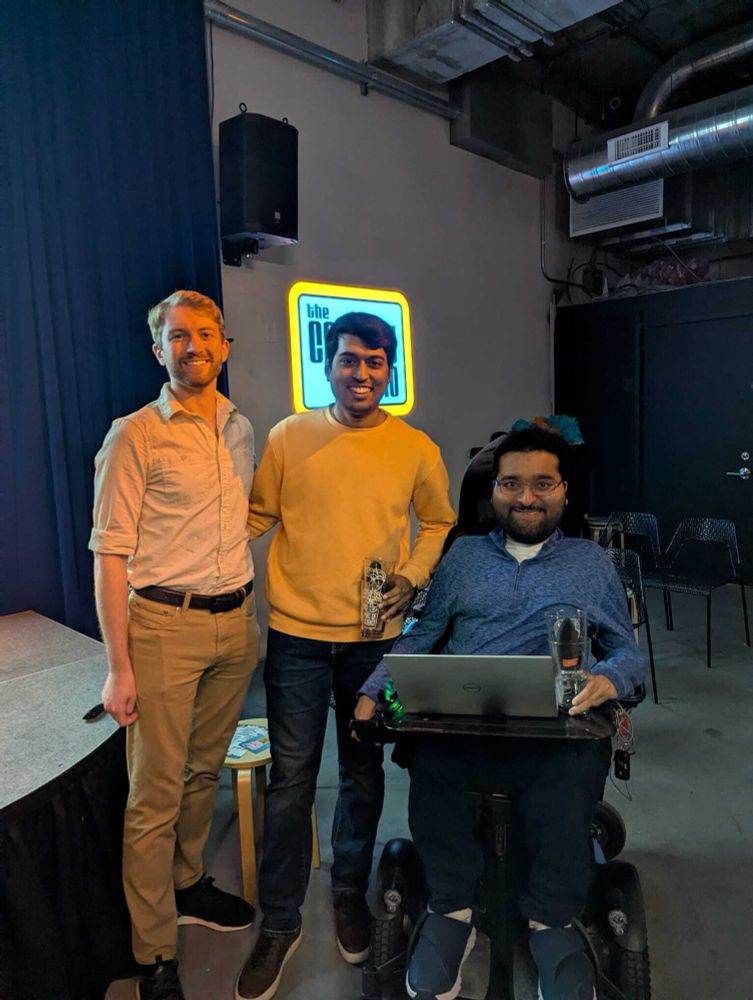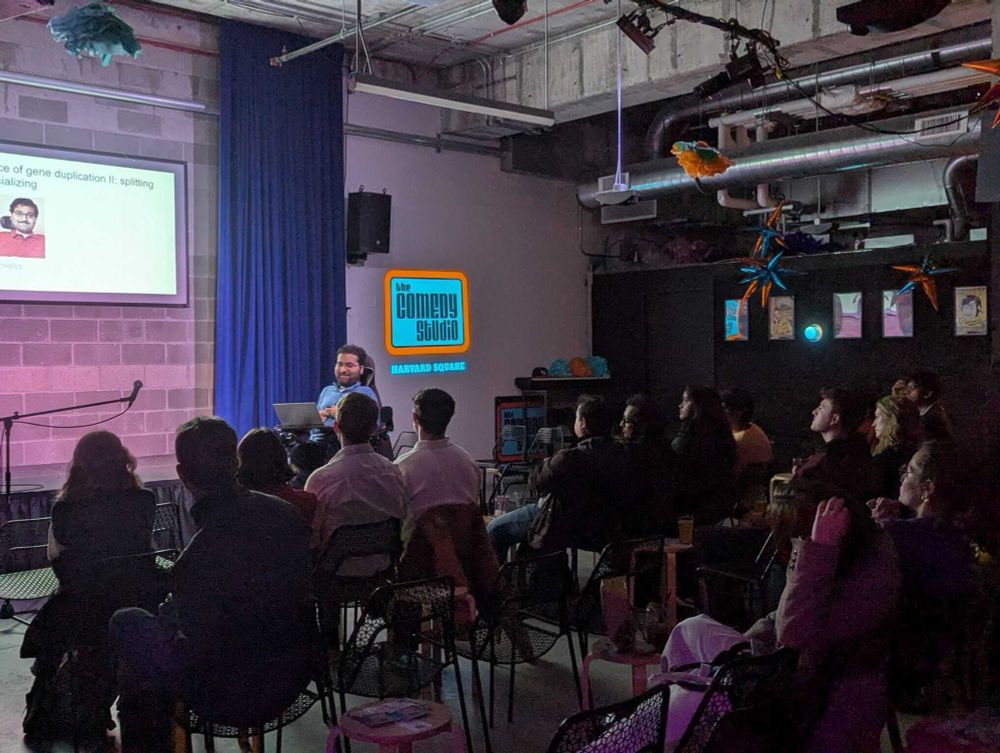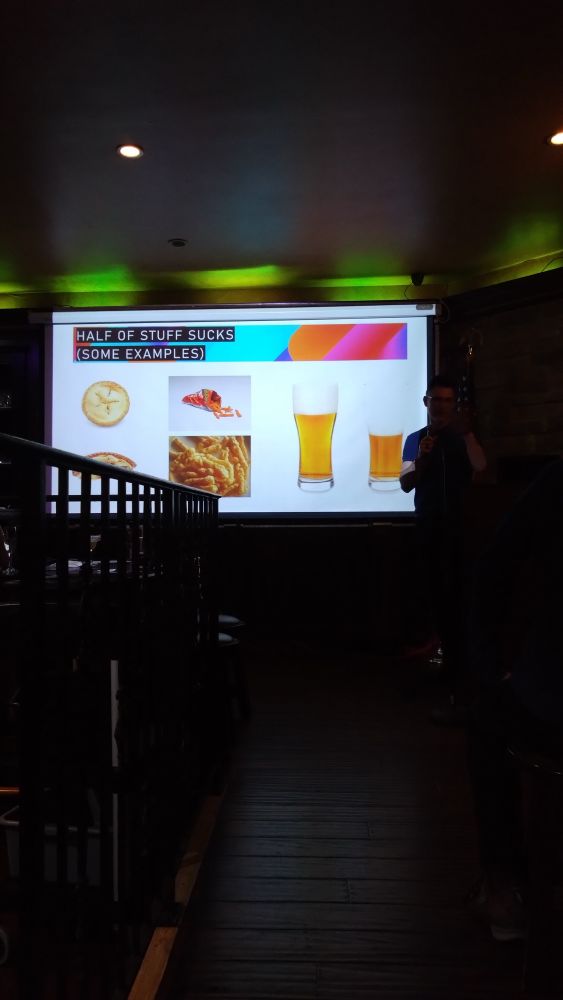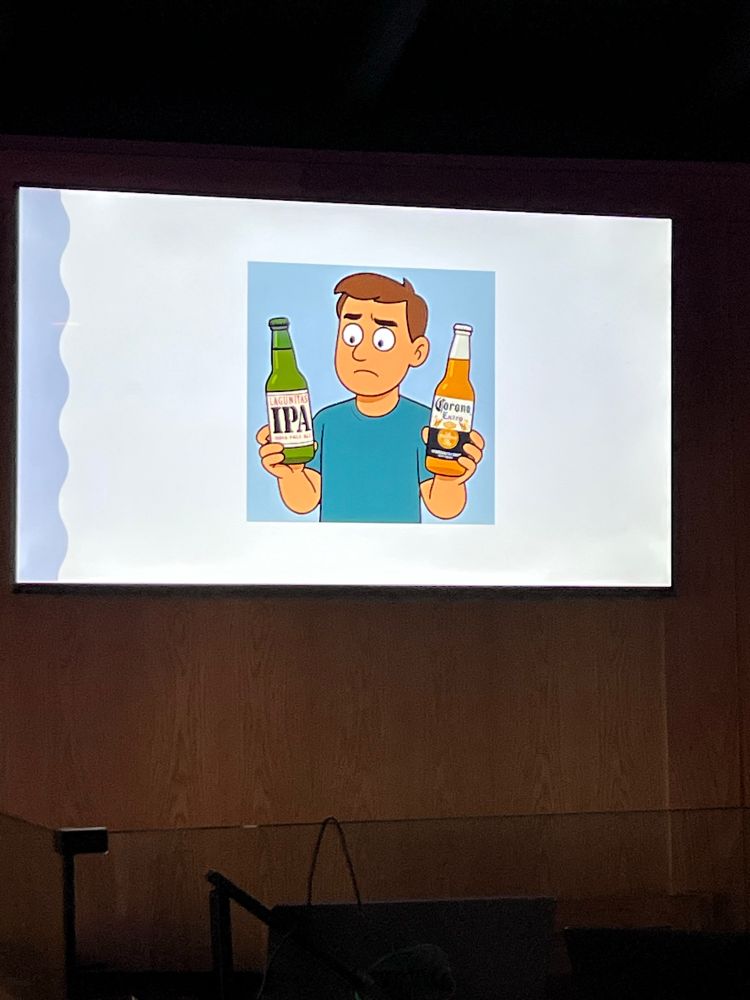
Shreyas Pai
@theshreyaspai.bsky.social
Systems Biology PhD Student @Harvard, Labs of Michael Desai @mmdesai.bsky.social & Michael Baym @baym.lol | Trinity College Cambridge Alum | Evolution & Microbes
Reposted by Shreyas Pai
🎃🕷️Tick or treat?
Just in time for spooky season... I found a tick on an electric eel in the MCZ collections.
Not even the fish are safe!
Check it out here: doi.org/10.1093/jme/...
Just in time for spooky season... I found a tick on an electric eel in the MCZ collections.
Not even the fish are safe!
Check it out here: doi.org/10.1093/jme/...

An eclectic encounter: ticks feeding on an electric eel and the untapped potential of natural history collections
Abstract. Parasites are quite likely the most diverse guild of species on earth. Nevertheless, they remain under-documented despite their impact on the hea
doi.org
October 29, 2025 at 5:05 PM
🎃🕷️Tick or treat?
Just in time for spooky season... I found a tick on an electric eel in the MCZ collections.
Not even the fish are safe!
Check it out here: doi.org/10.1093/jme/...
Just in time for spooky season... I found a tick on an electric eel in the MCZ collections.
Not even the fish are safe!
Check it out here: doi.org/10.1093/jme/...
Reposted by Shreyas Pai
One of the most exciting works of my career, years in the making. We used high-throughput precision genome editing to test the fitness effects of thousands of natural variants. Our findings challenge the long-held assumption that common variants are inconsequential.
www.biorxiv.org/content/10.1...
www.biorxiv.org/content/10.1...

Massively parallel interrogation of the fitness of natural variants in ancient signaling pathways reveals pervasive local adaptation
The nature of standing genetic variation remains a central debate in population genetics, with differing perspectives on whether common variants are almost always neutral as suggested by neutral and n...
www.biorxiv.org
October 22, 2025 at 5:46 PM
One of the most exciting works of my career, years in the making. We used high-throughput precision genome editing to test the fitness effects of thousands of natural variants. Our findings challenge the long-held assumption that common variants are inconsequential.
www.biorxiv.org/content/10.1...
www.biorxiv.org/content/10.1...
Reposted by Shreyas Pai
I gave a talk last year at TEDxNewEngland aimed at introducing the idea of viral sociality to a general audience, including implications for evolution & virology. Video now available online below.
#socialviruses #evosky #virosky 🧪
#socialviruses #evosky #virosky 🧪

The social lives of viruses | Asher Leeks | TEDxNewEngland
YouTube video by TEDx Talks
www.youtube.com
October 7, 2025 at 10:38 PM
I gave a talk last year at TEDxNewEngland aimed at introducing the idea of viral sociality to a general audience, including implications for evolution & virology. Video now available online below.
#socialviruses #evosky #virosky 🧪
#socialviruses #evosky #virosky 🧪
Reposted by Shreyas Pai
Happy to see this paper finally out in @pnas.org!
#phage #microbiology #MicroSky #VirEvol 🦠 🧫 🔬
Gift link: www.pnas.org/eprint/YYDZ9...
#phage #microbiology #MicroSky #VirEvol 🦠 🧫 🔬
Gift link: www.pnas.org/eprint/YYDZ9...
September 8, 2025 at 7:51 PM
Happy to see this paper finally out in @pnas.org!
#phage #microbiology #MicroSky #VirEvol 🦠 🧫 🔬
Gift link: www.pnas.org/eprint/YYDZ9...
#phage #microbiology #MicroSky #VirEvol 🦠 🧫 🔬
Gift link: www.pnas.org/eprint/YYDZ9...
Reposted by Shreyas Pai
Feels surreal to say but: I'm hiring! If you are or know anyone interested in looking at the evolution of phage resistance using A. baumannii and natural transformation, then this might be for you
www.jobbnorge.no/en/available...
www.jobbnorge.no/en/available...

Research position in Microbial Pharmacology and Population Biology (282139) | UiT The Arctic University of Norway
Job title: Research position in Microbial Pharmacology and Population Biology (282139), Employer: UiT The Arctic University of Norway, Deadline: Wednesday, August 27, 2025
www.jobbnorge.no
August 8, 2025 at 7:52 AM
Feels surreal to say but: I'm hiring! If you are or know anyone interested in looking at the evolution of phage resistance using A. baumannii and natural transformation, then this might be for you
www.jobbnorge.no/en/available...
www.jobbnorge.no/en/available...
Reposted by Shreyas Pai
I'm excited to announce our new biorxiv preprint, wherein we investigate the evolution of the weirdest genetic locus I've ever seen! Behold the tgr genes of the social amoeba, which mediate self/non-self discrimination during facultative multicellularity 🐅 🧵 1/
www.biorxiv.org/content/10.1...
www.biorxiv.org/content/10.1...

Hypermutable hotspot enables the rapid evolution of self/non-self recognition genes in Dictyostelium
Cells require highly polymorphic receptors to perform accurate self/non-self recognition. In the amoeba Dicytostelium discoideum, polymorphic TgrB1 & TgrC1 proteins are used to bind sister cells and e...
www.biorxiv.org
August 5, 2025 at 12:56 AM
I'm excited to announce our new biorxiv preprint, wherein we investigate the evolution of the weirdest genetic locus I've ever seen! Behold the tgr genes of the social amoeba, which mediate self/non-self discrimination during facultative multicellularity 🐅 🧵 1/
www.biorxiv.org/content/10.1...
www.biorxiv.org/content/10.1...
Reposted by Shreyas Pai
I'm very excited to share something I've been working on off-and-on for a long time now: a new blog about genotype-phenotype landscapes! The first post is a Gödel-Escher-Bach-style dialogue to introduce the topic. If you like it please share/repost! open.substack.com/pub/topossib...
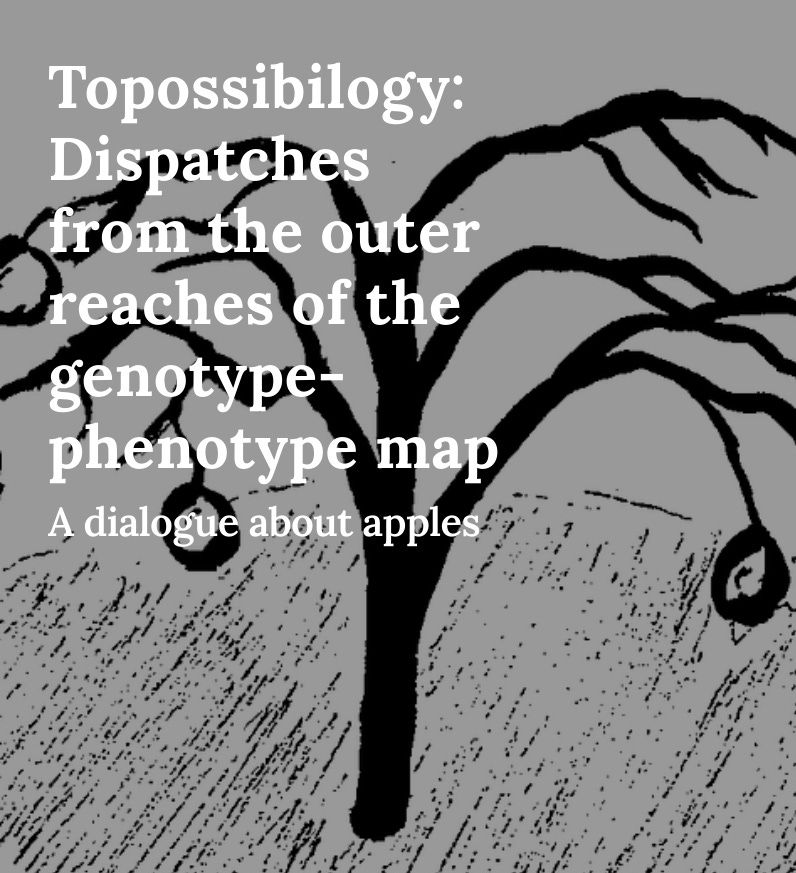
July 27, 2025 at 8:18 PM
I'm very excited to share something I've been working on off-and-on for a long time now: a new blog about genotype-phenotype landscapes! The first post is a Gödel-Escher-Bach-style dialogue to introduce the topic. If you like it please share/repost! open.substack.com/pub/topossib...
Reposted by Shreyas Pai
🚨Fresh out of press!
How do wild bacterial communities respond to environmental perturbations like liming?
We experimentally evolved them to find out!
academic.oup.com/ismej/articl...
How do wild bacterial communities respond to environmental perturbations like liming?
We experimentally evolved them to find out!
academic.oup.com/ismej/articl...
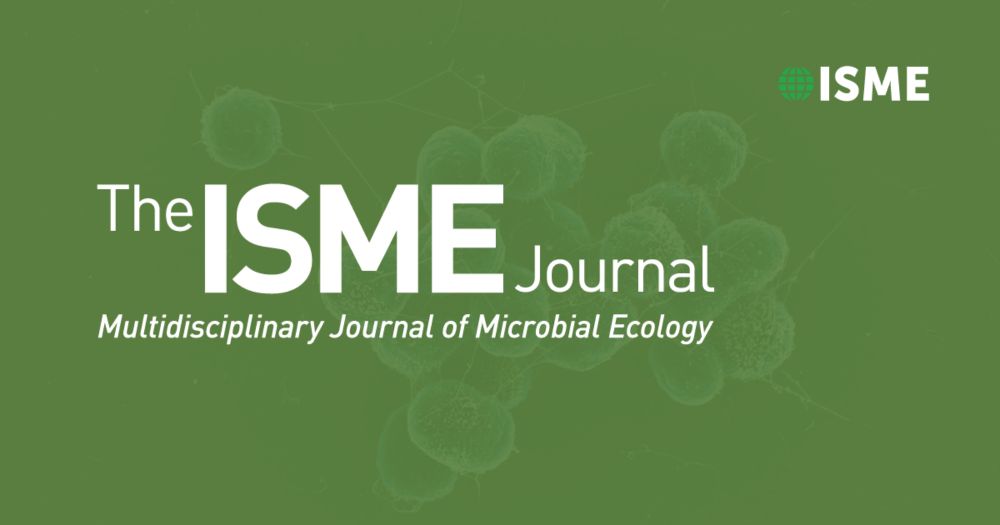
Eco-evolutionary robustness of wild bacterial communities to experimental perturbation
Abstract. Most knowledge about bacterial evolution and ecological interactions comes from laboratory studies. One difference between the wild and most labo
academic.oup.com
July 22, 2025 at 8:53 PM
🚨Fresh out of press!
How do wild bacterial communities respond to environmental perturbations like liming?
We experimentally evolved them to find out!
academic.oup.com/ismej/articl...
How do wild bacterial communities respond to environmental perturbations like liming?
We experimentally evolved them to find out!
academic.oup.com/ismej/articl...
Reposted by Shreyas Pai
New review article with @mmdesai.bsky.social is out today! Grateful for the opportunity to contribute something we hope will serve the community well
New online! Experimental evolution in an era of molecular manipulation
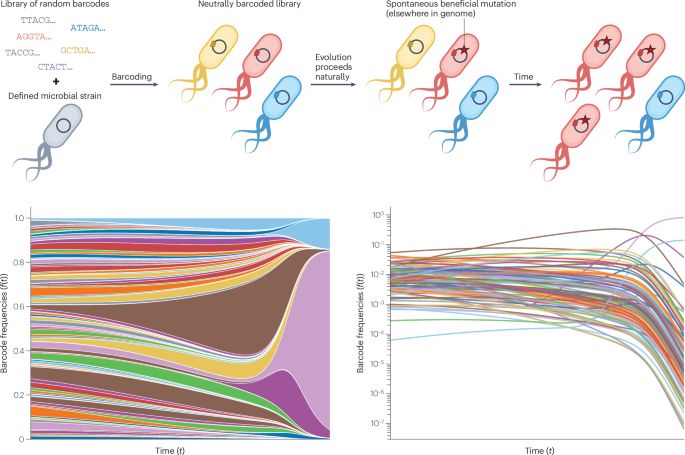
Experimental evolution in an era of molecular manipulation
Nature Reviews Genetics, Published online: 21 July 2025; doi:10.1038/s41576-025-00867-6In this Review, Ascensao and Desai discuss how methodological advances in genotype and phenotype manipulation are transforming experimental evolution approaches and providing new insights into the underlying genetics and forces that shape phenotypic evolution.
www.nature.com
July 21, 2025 at 5:30 PM
New review article with @mmdesai.bsky.social is out today! Grateful for the opportunity to contribute something we hope will serve the community well
Reposted by Shreyas Pai
The science was cutting edge, and the company was unparalleled- thank you everyone for such a welcoming and thrilling #GRCMicroPop! Looking forward to cyberstalking all your google scholar profiles ❤️
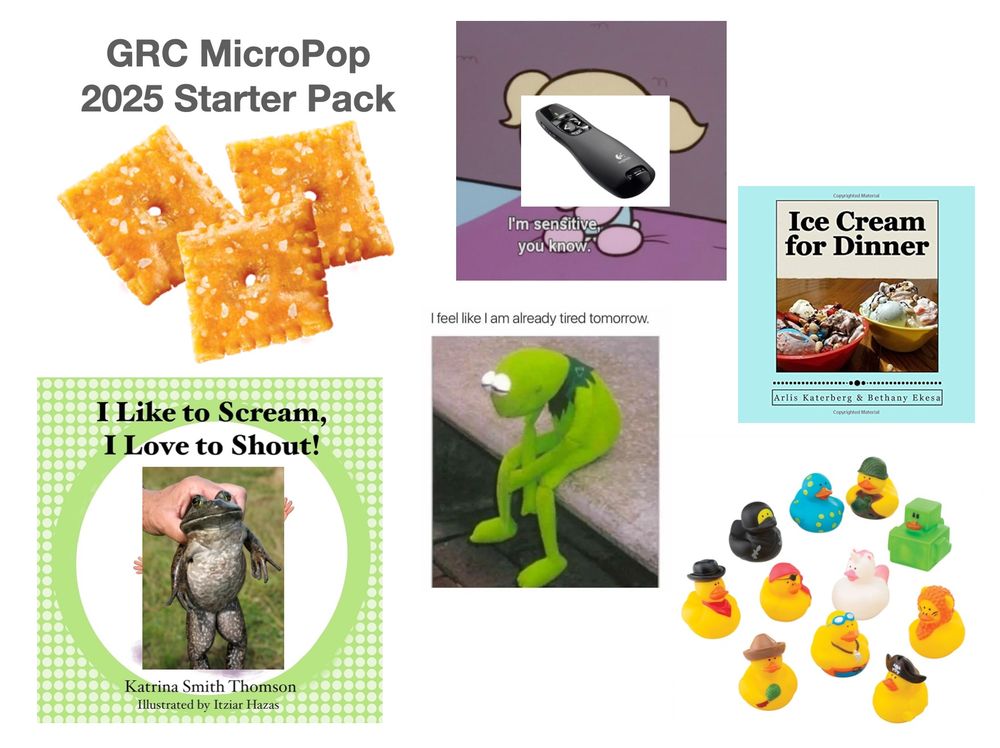
July 11, 2025 at 5:30 PM
The science was cutting edge, and the company was unparalleled- thank you everyone for such a welcoming and thrilling #GRCMicroPop! Looking forward to cyberstalking all your google scholar profiles ❤️
Reposted by Shreyas Pai
Looking forward to seeing everyone, new and old, at the Microbial Population Biology GRS + GRC in just a couple days!
go.bsky.app/GGxRjzC
go.bsky.app/GGxRjzC
July 3, 2025 at 8:25 PM
Looking forward to seeing everyone, new and old, at the Microbial Population Biology GRS + GRC in just a couple days!
go.bsky.app/GGxRjzC
go.bsky.app/GGxRjzC
Reposted by Shreyas Pai
Had an absolutely fabulous time at the 2025 molecular mechanisms of evolution GRC! Amazing science, amazing people, card games, CanJam, and a lil' EtOH 🥹 - it was a week to remember! Excited to get back into lab this week and put into practice some great suggestions 🤓
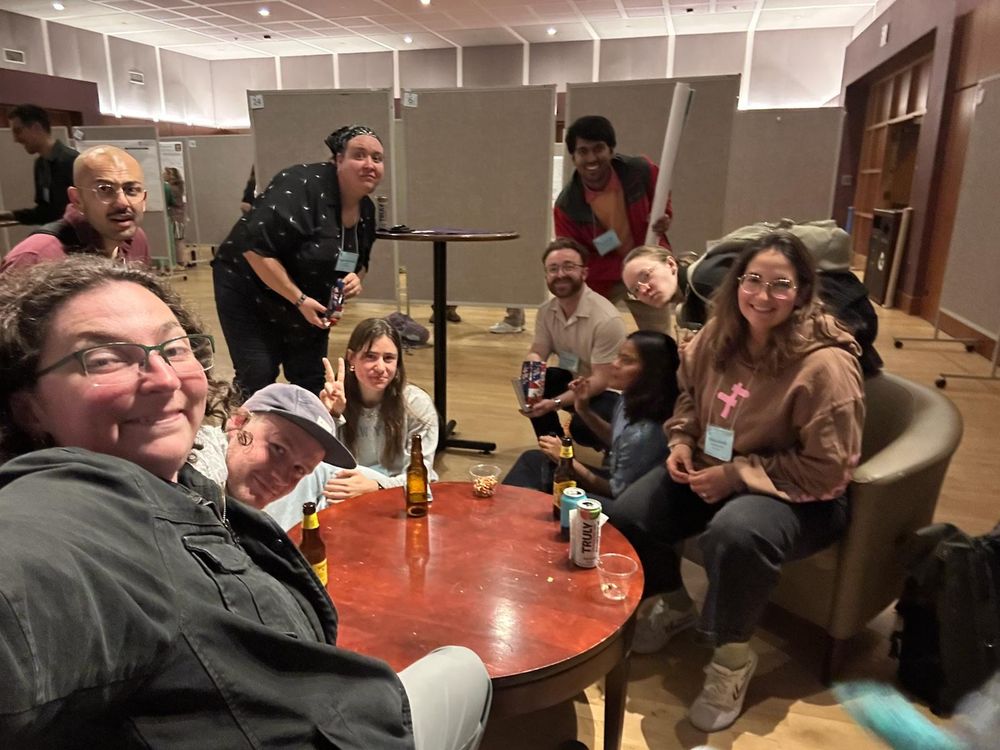
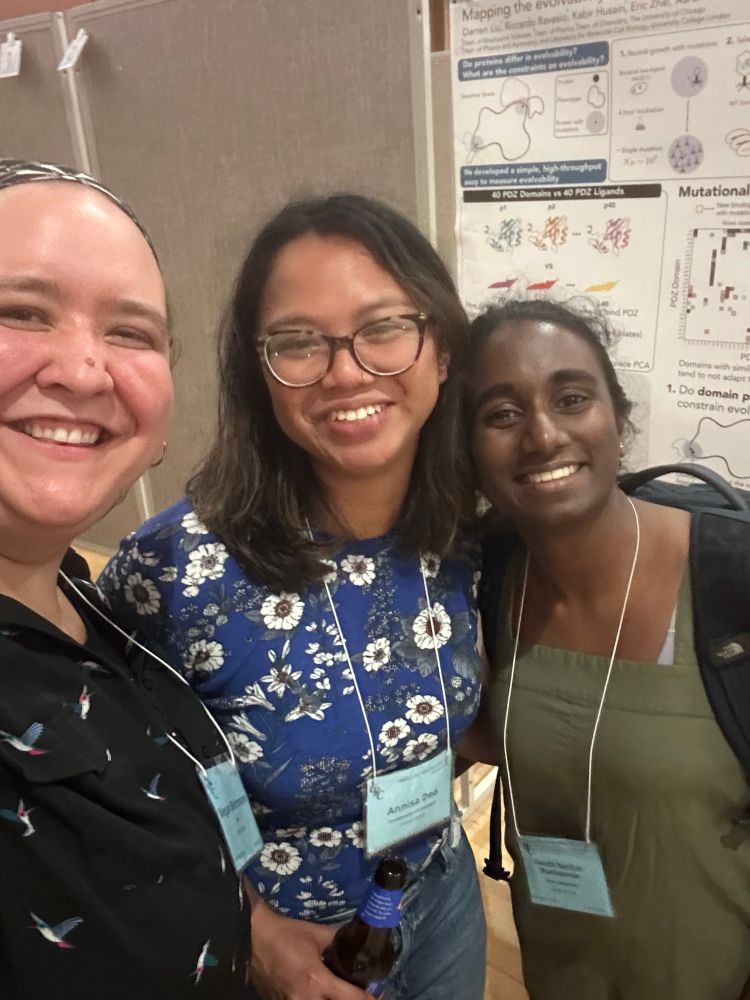
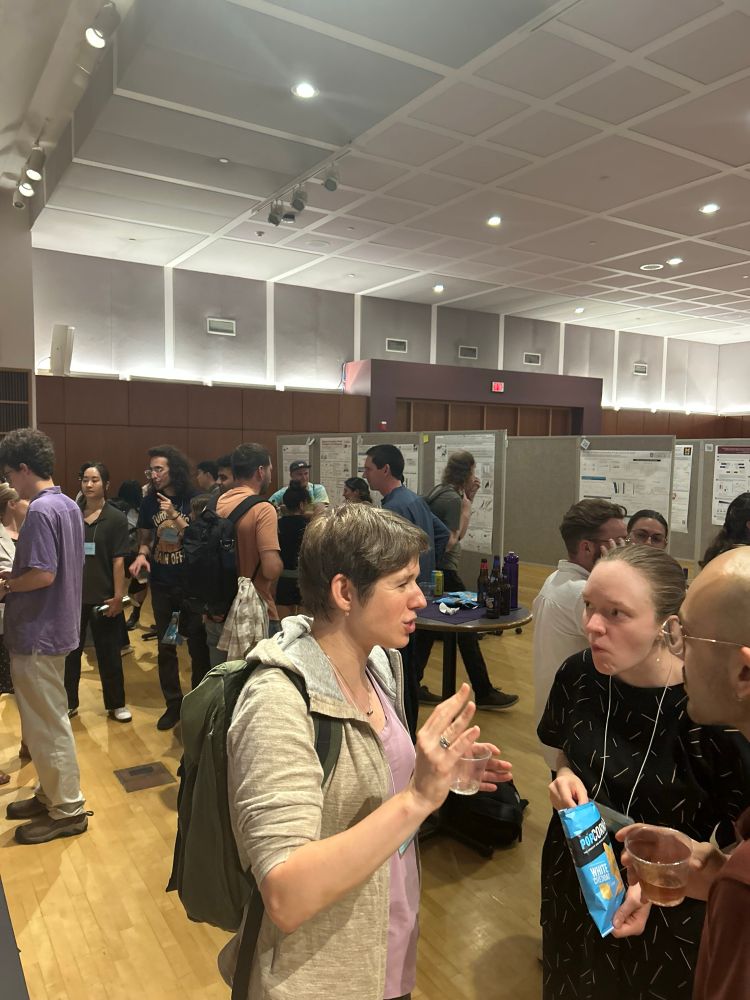
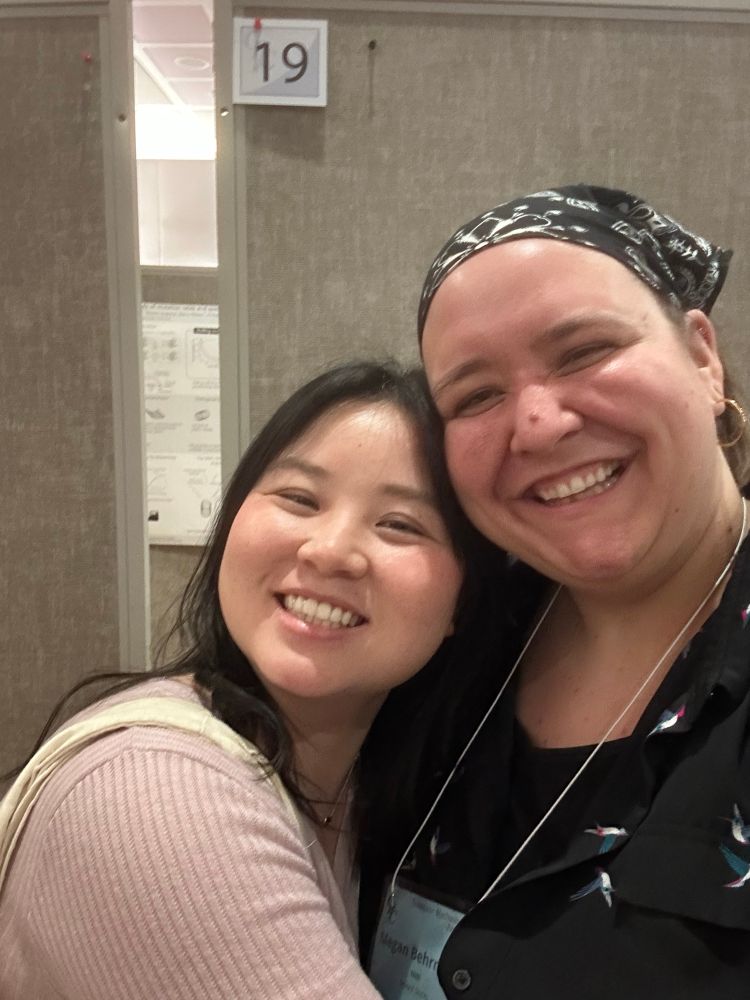
June 30, 2025 at 11:16 PM
Had an absolutely fabulous time at the 2025 molecular mechanisms of evolution GRC! Amazing science, amazing people, card games, CanJam, and a lil' EtOH 🥹 - it was a week to remember! Excited to get back into lab this week and put into practice some great suggestions 🤓
Reposted by Shreyas Pai
the Baym lab 🔜 Molecular Mechanisms GRS! Come talk about the evolution and ecology of MGEs
@fernpizza.bsky.social Multilevel plasmid selection!
@arya (arya.casa) Creation of deletion-born fusion genes (frankenstein genes 🧟)
@theshreyaspai.bsky.social Why sex is so common even though it’s costly
@fernpizza.bsky.social Multilevel plasmid selection!
@arya (arya.casa) Creation of deletion-born fusion genes (frankenstein genes 🧟)
@theshreyaspai.bsky.social Why sex is so common even though it’s costly
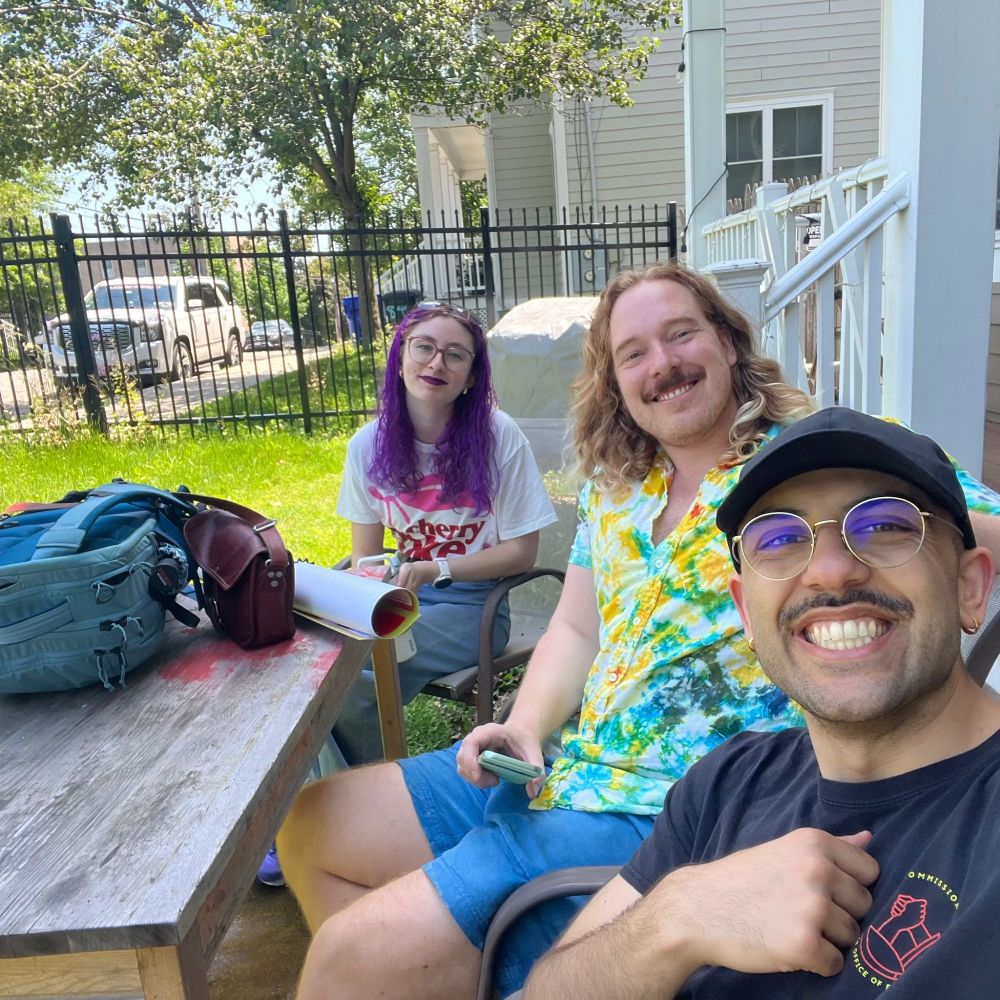
June 21, 2025 at 4:58 PM
the Baym lab 🔜 Molecular Mechanisms GRS! Come talk about the evolution and ecology of MGEs
@fernpizza.bsky.social Multilevel plasmid selection!
@arya (arya.casa) Creation of deletion-born fusion genes (frankenstein genes 🧟)
@theshreyaspai.bsky.social Why sex is so common even though it’s costly
@fernpizza.bsky.social Multilevel plasmid selection!
@arya (arya.casa) Creation of deletion-born fusion genes (frankenstein genes 🧟)
@theshreyaspai.bsky.social Why sex is so common even though it’s costly
Reposted by Shreyas Pai
The latest work from my lab, Phage Disco, a method
@ellie-rand.bsky.social
developed for targeted discovery of bacteriophages based on the bacterial receptor, defense system, or other component they interact with, is now live in mSystems
journals.asm.org/doi/10.1128/...
@ellie-rand.bsky.social
developed for targeted discovery of bacteriophages based on the bacterial receptor, defense system, or other component they interact with, is now live in mSystems
journals.asm.org/doi/10.1128/...
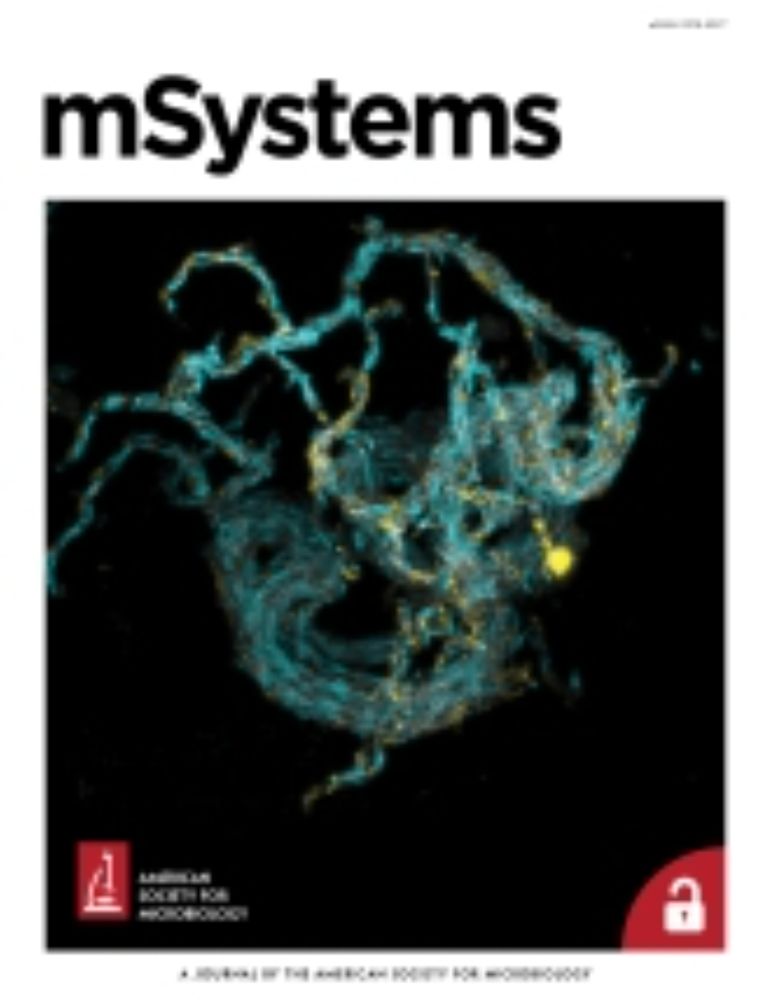
Phage DisCo: targeted discovery of bacteriophages by co-culture | mSystems
In this work, we describe a targeted phage discovery method that allows immediate
isolation of phages with specific traits. Currently, to find a phage with specific
properties, huge libraries of phage...
journals.asm.org
May 29, 2025 at 2:17 AM
The latest work from my lab, Phage Disco, a method
@ellie-rand.bsky.social
developed for targeted discovery of bacteriophages based on the bacterial receptor, defense system, or other component they interact with, is now live in mSystems
journals.asm.org/doi/10.1128/...
@ellie-rand.bsky.social
developed for targeted discovery of bacteriophages based on the bacterial receptor, defense system, or other component they interact with, is now live in mSystems
journals.asm.org/doi/10.1128/...
Reposted by Shreyas Pai
Phage DisCo! Our targeted phage discovery method in press today: journals.asm.org/doi/10.1128/...
Perfectly timed with our four summer undergrad's first successful phage hunt... disco lights in the lab to mark the occasion 🕺
Perfectly timed with our four summer undergrad's first successful phage hunt... disco lights in the lab to mark the occasion 🕺
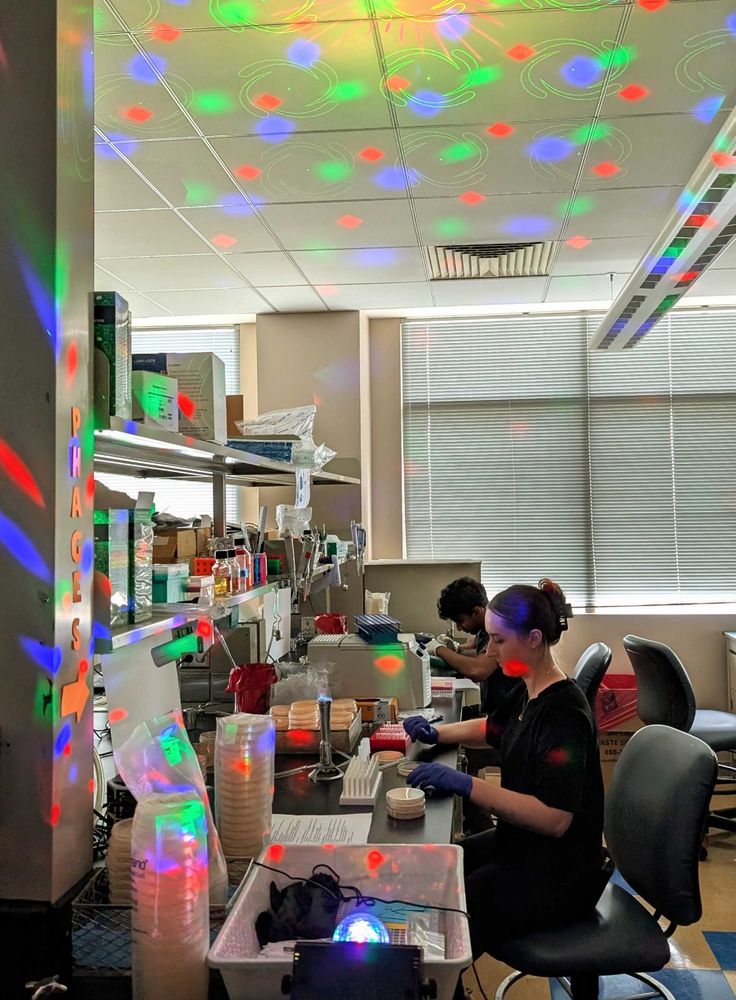
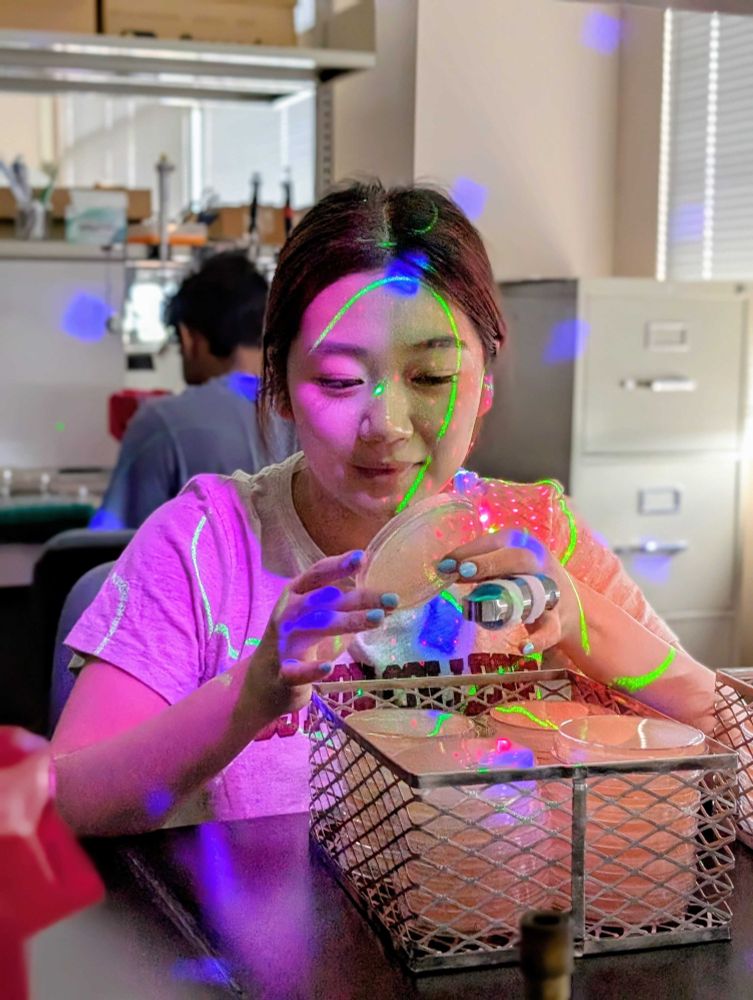
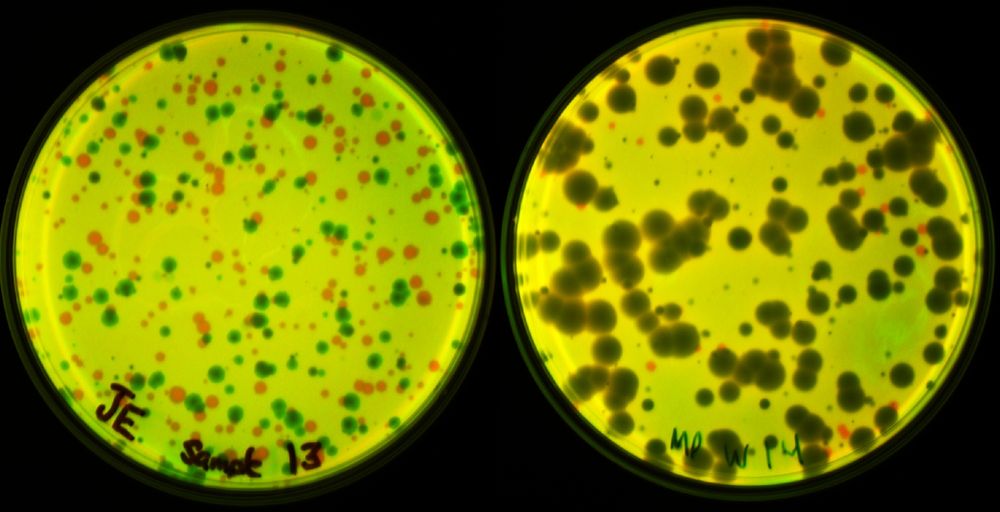
May 28, 2025 at 10:34 PM
Phage DisCo! Our targeted phage discovery method in press today: journals.asm.org/doi/10.1128/...
Perfectly timed with our four summer undergrad's first successful phage hunt... disco lights in the lab to mark the occasion 🕺
Perfectly timed with our four summer undergrad's first successful phage hunt... disco lights in the lab to mark the occasion 🕺
Reposted by Shreyas Pai
(1/7) Very excited to share my first PhD preprint on the interactions of two of my favorite mobile genetic elements: phages and group II introns!
www.biorxiv.org/content/10.1...
www.biorxiv.org/content/10.1...

Prevalence of Group II Introns in Phage Genomes
Although bacteriophage genomes are under strong selective pressure for high coding density, they are still frequently invaded by mobile genetic elements (MGEs). Group II introns are MGEs that reduce h...
www.biorxiv.org
May 24, 2025 at 7:20 PM
(1/7) Very excited to share my first PhD preprint on the interactions of two of my favorite mobile genetic elements: phages and group II introns!
www.biorxiv.org/content/10.1...
www.biorxiv.org/content/10.1...
Super excited to be talking at Pint of Science next week! Alongside my incredibly talented friend and fellow evolutionary biologist Rishabh Kapoor!

May 16, 2025 at 2:08 AM
Super excited to be talking at Pint of Science next week! Alongside my incredibly talented friend and fellow evolutionary biologist Rishabh Kapoor!
Reposted by Shreyas Pai
Our latest paper, in which @brinda.eu (along with @zaminiqbal.bsky.social and others) introduces phylogenetic compression for storage and search of enormous microbial genome libraries, was published today in @naturemethods.bsky.social:
rdcu.be/eg4OA
1/
rdcu.be/eg4OA
1/
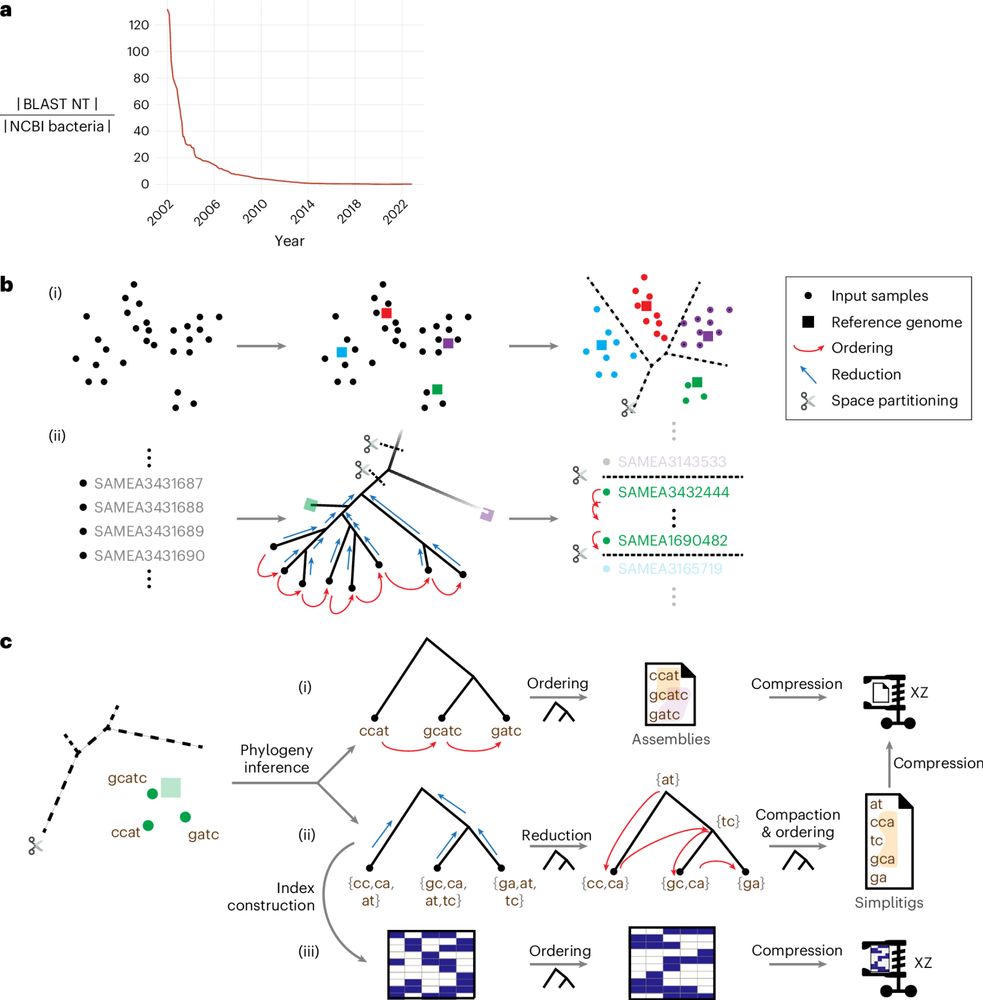
Efficient and robust search of microbial genomes via phylogenetic compression
Nature Methods - Phylogenetic compression achieves performant and lossless compression of massive collections of microbial genomes, facilitating fast BLAST-like search and versatile alignment tasks.
rdcu.be
April 9, 2025 at 9:07 PM
Our latest paper, in which @brinda.eu (along with @zaminiqbal.bsky.social and others) introduces phylogenetic compression for storage and search of enormous microbial genome libraries, was published today in @naturemethods.bsky.social:
rdcu.be/eg4OA
1/
rdcu.be/eg4OA
1/
CSHL Yeast Genetics and Genomics was one of the best scientific experiences I've ever had! Incredible instructors, terrific peers, and awesome science!
Application deadline extended to Apr 15 for this summer's #Yeast #Genetics & #Genomics course at @cshlaboratory.bsky.social July22 - Aug12! Get a comprehensive education in all things yeast, from classical genetics through up-to-the-minute genomics. Don't miss out!
meetings.cshl.edu/courses.aspx...
meetings.cshl.edu/courses.aspx...
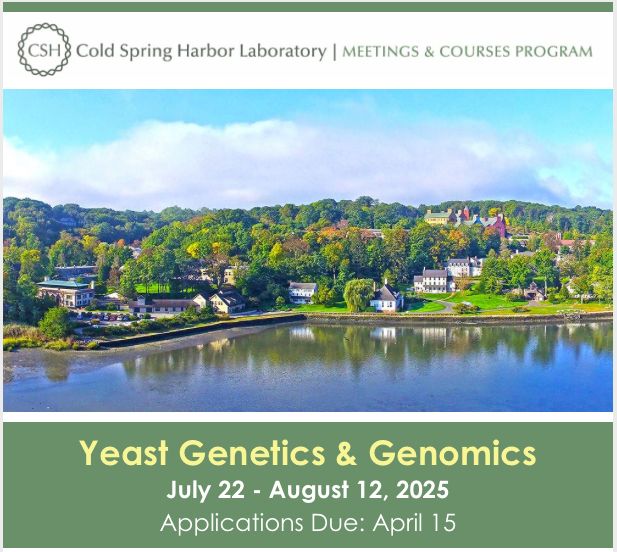
April 2, 2025 at 7:29 PM
CSHL Yeast Genetics and Genomics was one of the best scientific experiences I've ever had! Incredible instructors, terrific peers, and awesome science!
Why is sex so common if it's so costly?
Super excited to share our new preprint “Sex decreases the pleiotropic costs of local adaptation”, where we bring a new angle to this age-old evolutionary question. Co-led by Parris Humphrey, in Michael Desai's lab. Short thread here: (1/n)
Super excited to share our new preprint “Sex decreases the pleiotropic costs of local adaptation”, where we bring a new angle to this age-old evolutionary question. Co-led by Parris Humphrey, in Michael Desai's lab. Short thread here: (1/n)
Sex decreases the pleiotropic costs of local adaptation https://www.biorxiv.org/content/10.1101/2025.03.28.646016v1
April 2, 2025 at 6:59 PM
Why is sex so common if it's so costly?
Super excited to share our new preprint “Sex decreases the pleiotropic costs of local adaptation”, where we bring a new angle to this age-old evolutionary question. Co-led by Parris Humphrey, in Michael Desai's lab. Short thread here: (1/n)
Super excited to share our new preprint “Sex decreases the pleiotropic costs of local adaptation”, where we bring a new angle to this age-old evolutionary question. Co-led by Parris Humphrey, in Michael Desai's lab. Short thread here: (1/n)
Reposted by Shreyas Pai
Hi y'all! Know any recent or upcoming college graduates who are interested in microbiology and looking for (full-time! paid!) research experience? Please point them towards RaMP! Darian Doakes and I will be co-mentors for an MGE project that I think is going to be really cool. Apps+recs due 5/25
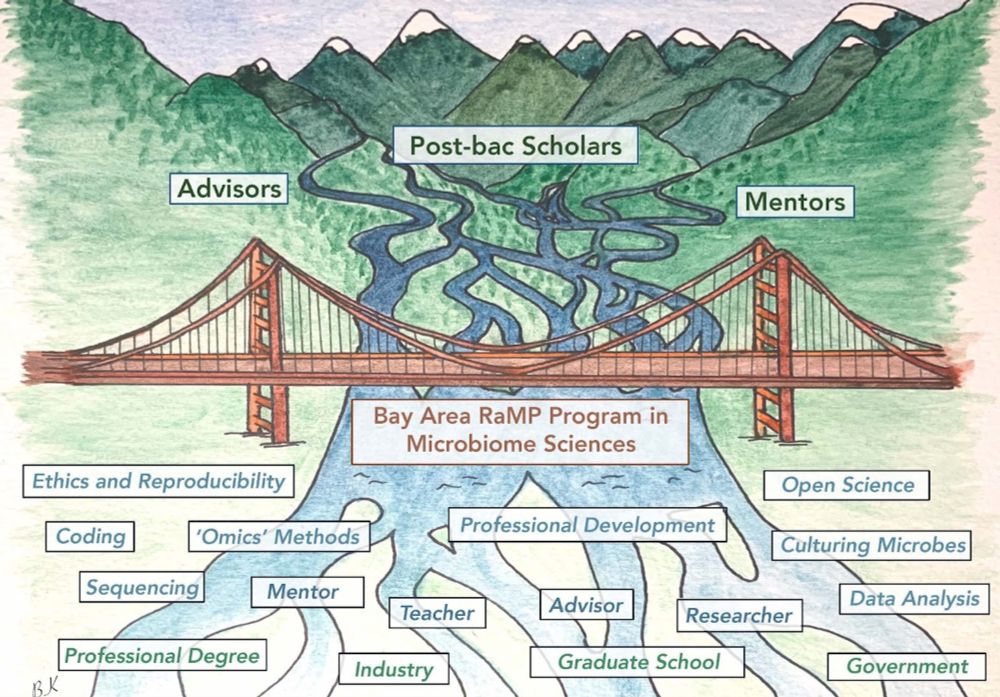
Bay Area RaMP
Mission
The Bay Area RaMP Program in Microbiome Sciences exists to increase potential for scientific advances by expanding the microbiome research workforce with well-trained, ethical scientists.
Our...
sites.google.com
March 28, 2025 at 9:19 PM
Hi y'all! Know any recent or upcoming college graduates who are interested in microbiology and looking for (full-time! paid!) research experience? Please point them towards RaMP! Darian Doakes and I will be co-mentors for an MGE project that I think is going to be really cool. Apps+recs due 5/25
Reposted by Shreyas Pai
Happy 37th birthday to the LTEE!
the-ltee.org/history/
the-ltee.org/history/
History – The Long-Term Evolution Experiment
the-ltee.org
February 24, 2025 at 3:39 PM
Happy 37th birthday to the LTEE!
the-ltee.org/history/
the-ltee.org/history/
Reposted by Shreyas Pai
I'm so happy that I can finally share the results of my first postdoc paper with @baym.lol!!! Turns out plasmids are an amazing system to study multi-scale evolution and we can track within-cell and between-cell dynamics!
(1/n) www.biorxiv.org/content/earl...
(1/n) www.biorxiv.org/content/earl...

Intracellular competition shapes plasmid population dynamics
Conflicts between levels of biological organization are central to evolution, from populations of multicellular organisms to selfish genetic elements in microbes. Plasmids are extrachromosomal, self-r...
www.biorxiv.org
February 21, 2025 at 8:36 PM
I'm so happy that I can finally share the results of my first postdoc paper with @baym.lol!!! Turns out plasmids are an amazing system to study multi-scale evolution and we can track within-cell and between-cell dynamics!
(1/n) www.biorxiv.org/content/earl...
(1/n) www.biorxiv.org/content/earl...



